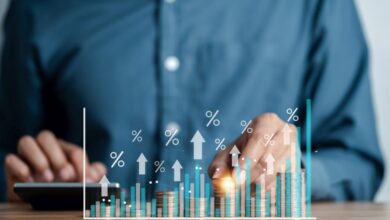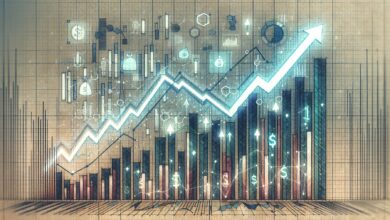Building financial resilience, battling climate change through fintech

It’s evidence that technology can help the more than 80% of the unbanked population living in the planet’s most climate-vulnerable regions become more resilient to both financial shocks and the impacts of climate change. By bringing more people into the digital economy, fintech apps can connect vulnerable users to services such as loan forgiveness, microinsurance or savings opportunities to cushion the effects of climate shocks.
To magnify these efforts, the Mastercard Center for Inclusive Growth joined the Climate Innovation for Adaptation and Resilience (CIFAR) Alliance, a cross-sector coalition dedicated to accelerating and scaling innovation in digital finance for low-income people affected by climate change. Both organizations want to train the wider financial inclusion community to approach their work with environmental sustainability in mind.
Intertwined crises
Many world leaders are beginning to recognize that financial inclusion and environmental sustainability are inextricably entangled, and that to improve one we must galvanize the other. “We cannot think about eradicating poverty without caring about climate,” Ajay Banga, president of the World Bank and former Mastercard CEO, said in January at Davos. “We have a set of intertwined crises.”
Because the problems are so complex, with roots in ecology, economics and long-standing social structures, solutions must come from multiple angles — which demands expertise in fields that don’t usually overlap, says Ali Schmidt-Fellner, a vice president at the Center for Inclusive Growth who is leading this work. “Our goal is to demonstrate that there’s a critical role for financial inclusion in addressing climate change.”
The Center is harnessing Mastercard’s central spot in the financial services industry by working with CIFAR to launch the Climate Smart Innovation Hub, a virtual platform that connects entrepreneurs with climate scientists, financial service providers and investors to accelerate the development of tools and resources that will provide new solutions to help people adapt and become more resilient to climate change.
CIFAR “is mixing the financial inclusion community’s knowledge on how to serve low-income populations with the climate sector’s knowledge on how to serve nature,” says David del Ser, chair and chief innovation officer at BFA Global, a founding member of the Alliance.
As a first step, the hub has unveiled the Climate Smart Financial Products gallery, which showcases more than 70 banking and financial service solutions designed to drive financial resilience and promote environmental sustainability, including Abalobi, the platform designed to support small-scale fishers like Shoshola. The products serve affected populations around the world with a range of financial tools including credit, savings, payments and insurance.
“The product gallery is a starting point for educating investors on what climate-smart financial products are, what types of services are most popular and which business models work,” Schmidt-Fellner says.
To help newer startups, the Center for Inclusive Growth, CIFAR and BFA Global have also held “climathons” in Cape Town and Bogota. At these high-speed boot camps, entrepreneurs brainstorm solutions alongside experienced scientists, software engineers and government planners. Prizes are awarded for the best product ideas, but the long-term goal is to start ongoing conversations between local fintech developers and climate experts.
“This is a new concept,” Schmidt-Fellner says, “so we’re trying to connect a new set of stakeholders who haven’t previously worked together as much.”
Click bait
Co-founded by fishers and scientists Raemaekers, Abalobi supports communities in keeping value local and fostering social entrepreneurship via a digital marketplace and traceability platform where fisher groups can sell directly to restaurants and other buyers. The fishers get a fair price; the chefs get today’s catch with a transparent legal provenance and a story to relay to their patrons. Fishers and scientists also gain valuable data insights to enhance fisheries’ rebuilding efforts.



